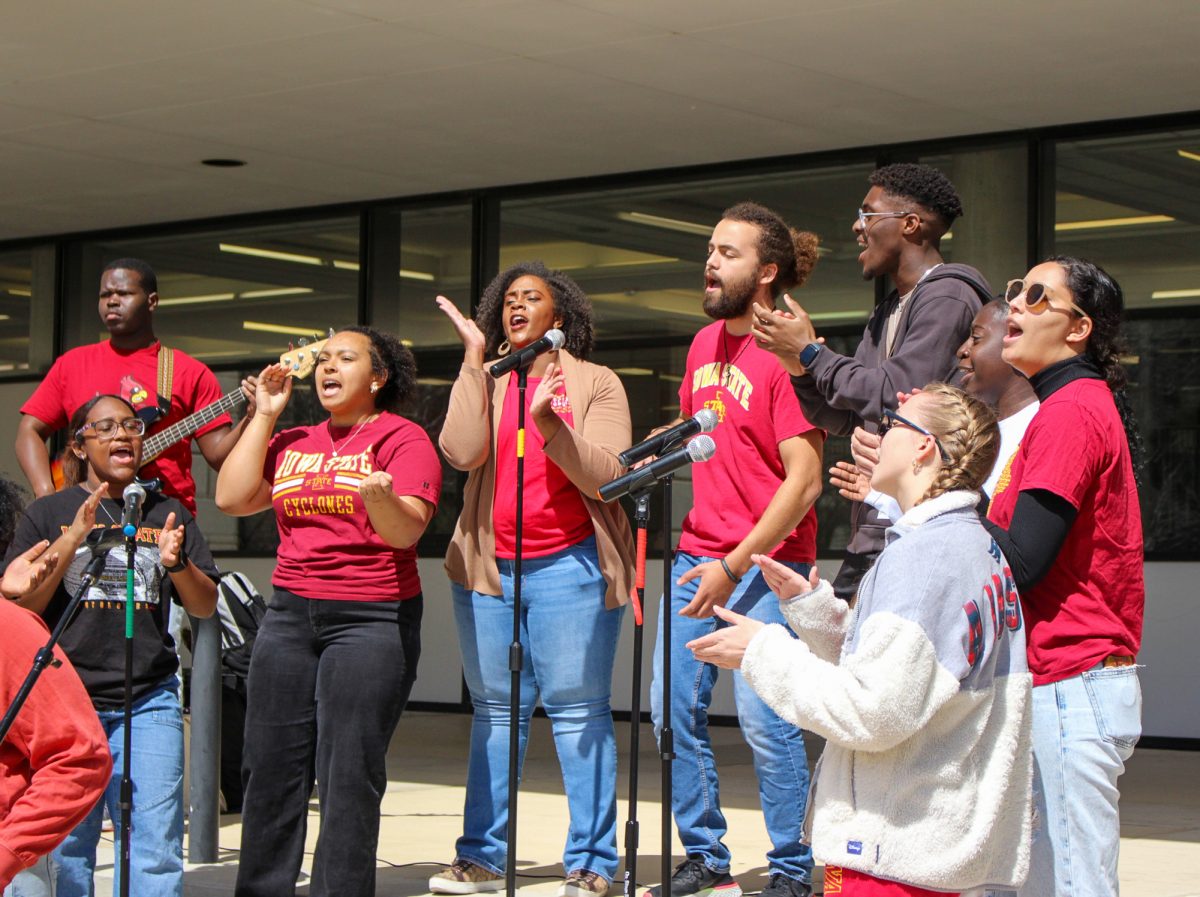Berta Jottar has specialized in the research and mixing of the music and dance practices of the Afro-Latinx Diaspora, which she illustrated in her lecture “Rumba: Tales of Sound & Sentiment in the Afro-Latinx Diaspora” on Thursday.
Jottar attended the New York University Tisch School of the Arts, where she received a doctorate from the department of performance studies.
Lucía Suárez, the director of the Latino studies program at Iowa State, said Jottar’s work does not shy away from relevant racial issues.
“As an experimental ethnographic filmmaker, she centers communities that are too often marginalized and ignored, but that are in fact an important part of our African Latino American mixed community,” Suárez said.
Jottar’s lecture featured videos that she has filmed and produced that showcase various performances of dance and song, focusing on those of Afro-Latino descent.
“I always want to show their fantastic performance because they were very generous to trust me and let me videotape,” Jottar said.
The videos were all about the Afro-Cuban music and dancing style. Central Park Rumba: The Pavlovian Drum was one of the videos shown, illustrating an incident of conflict between the rumba community and the New York Police Department, in which the police said they were breaking the law by having a gathering of more than 20 people and playing drums that were “unnaturally and unreasonably loud” without an event permit.
This conflict highlights the deeper historical significance of the African drum, particularly when they were used as a form of communication as well as rebellion.
“The drum becomes an artifact of war that has to be controlled or becomes noise that has to be regulated,” Jottar said.
Ritwik Banerji, an assistant professor of anthropology at Iowa State, said that when hearing about the issues regarding being too loud in a public setting, he thought of the music culture in New Orleans. Banerji compared the drums they use to ones that are popularly used in marching bands.
“It has the same history of ‘it’s too loud’ is code for ‘it’s too black’,” Banerji said.
Jottar said an excess of 150,000 individuals have left Cuba over the last two years, marking the country’s largest mass departure. Fragmentation, which Jottar described as the result of living in exile as a normal citizen, was one of her key points. She said that emigrants often long for the home they cannot return to.
“No matter how much of the immigrant or the citizen is changing through learning the language, getting rid of the accents, performing citizenship through national anthems and folkloric dances, they will always be ‘not authentic’ citizens,” Jottar said.
Jottar said music, dance and gesture become an important space to create a structure of feelings that create sentiments of belonging.
“It’s not that they are exiled from their nation of origin; they are exiled within the United States given that the policies and legislation against rumba continues,” Jottar said.








